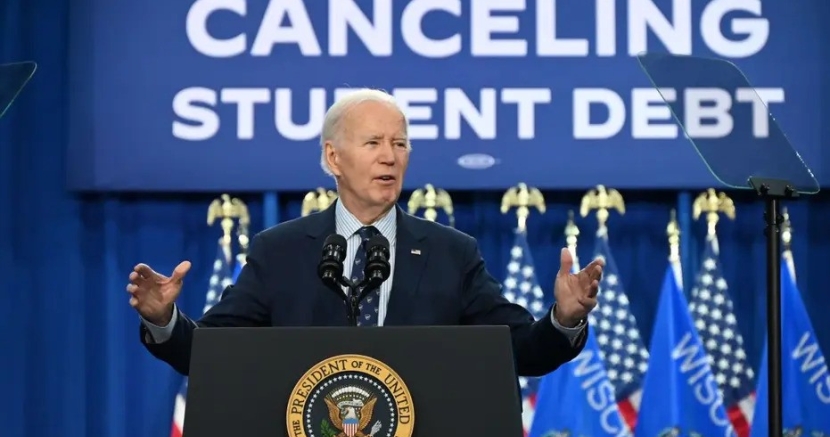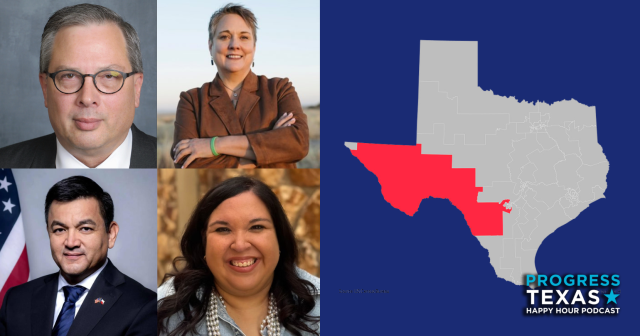Topline & Key Facts:
- President Biden acts to forgive exorbitant student loans
- Proposal blocked by the conservative majority U.S. Supreme Court
- Big business loans were forgiven by hypocritical Republicans
- How to see if your loans have been forgiven
The Breakdown of Biden’s Student Loan Forgiveness Plan
In August of 2022, President Biden announced a student loan forgiveness plan aimed at providing debt relief for millions of federal student loan borrowers. Under the plan, borrowers earning less than $125,000 per year (or couples filing taxes jointly and making under $250,000) would be eligible for up to $10,000 in federal student loan forgiveness. Recipients of Pell Grants, which are awarded to students from lower-income households, could receive up to $20,000 in student loan debt cancellation. The plan also extended the pandemic-era pause on student loan repayments through June, 2023.
The rising cost of higher education and resulting student debt burden in the United States has become an economic and political issue over the past decade. Advocates argue that the $1.6 trillion in outstanding federal student loan debt weighs heavily on millions of Americans, preventing them from buying homes, starting businesses, or making other investments.
For President Biden, tackling the student debt crisis was a campaign promise and has been framed as a matter of racial equity and economic mobility. Data shows that student loan debt disproportionately impacts Black and Hispanic borrowers and the Biden Administration believes that debt cancellation can help narrow the racial wealth gap.
Student Loan Forgiveness Plan Blocked by Conservative majority SCOTUS
In November, 2022, the debt relief plan faced legal challenges, with two federal courts issuing national injunctions blocking the program. Critics argued that Biden overstepped his executive authority by surpassing Congress and that the plan unfairly benefits some borrowers at the expense of all taxpayers, including those who already repaid loans.
The Supreme Court heard oral arguments in the cases in February 2023, with the conservative-leaning court appearing skeptical of the program's legal justification. In June of 2023, the Supreme Court struck down the student loan forgiveness plan with the court ruling 6-3. Borrowers expressed a mix of grief, disappointment, and anger over the ruling. Many felt that the Supreme Court did not represent their best interests or understand the struggles of regular people burdened by student debt.
Undaunted and despite the Supreme Court ruling against his original plan, President Biden announced plans to pursue a debt relief program under the Higher Education Act of 1965. This signals the administration's determination to continue providing some form of student loan forgiveness.
PPP Loan Forgiveness
In conjunction with student loan forgiveness, the Biden administration also has been making efforts with small businesses on rollouts for Payment Protection Program (PPP) loans. The Biden administration revised some of the eligibility rules to allow student loan borrowers in default to access PPP loans, which was previously not permitted. There was also an increased focus on distributing PPP funds through Community Development Financial Institutions (CDFIs) and minority depository institutions to better reach underserved communities.
This plan did receive pushback from Republicans in Congress, claiming that student loan forgiveness is an unfair giveaway that will fuel inflation and benefit wealthier borrowers. Many Republican lawmakers themselves benefitted from receiving PPP loans in the past and were seen as hypocrites for opposing student loan forgiveness and supporting PPP loan forgiveness.
The Current Status of Student Loan Forgiveness
As of April of 2024, the Biden-Harris Administration announced that they have canceled up to $160 million in student loan forgiveness, stated in a post on Twitter by Vice President Harris. President Biden has vowed to continue to deliver on his promise for student loan forgiveness and so far he has been a President of his word. To find out how you can qualify for student loan forgiveness visit this link.
Call To Action
Because of these commitments to higher education affordability, we encourage everyone to vote! Early voting runs October 21 through November 1, and Election Day is Tuesday, November 5. Together, we can ensure that these policies continue and that education continues to be a priority for the administration in power.
From anti-DEI legislation across the South, to Republicans wanting to dismantle the Department of Education as a part of their Project 2025 plan, we encourage all students, former and future, and those who are liable or paying for someone’s education to join the fight. Block walk, phone bank, send texts, and do whatever you can in the next several months to make sure that we keep an administration in the White House that wants to invest in our future.
DONATE
Your donation supports our media and helps us keep it free of ads and paywalls.









